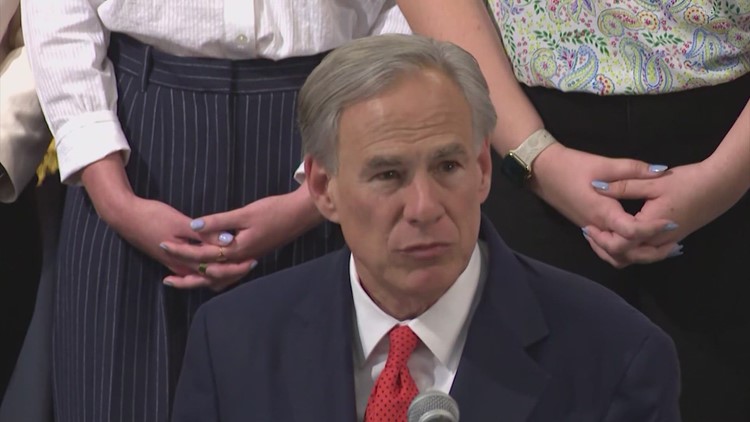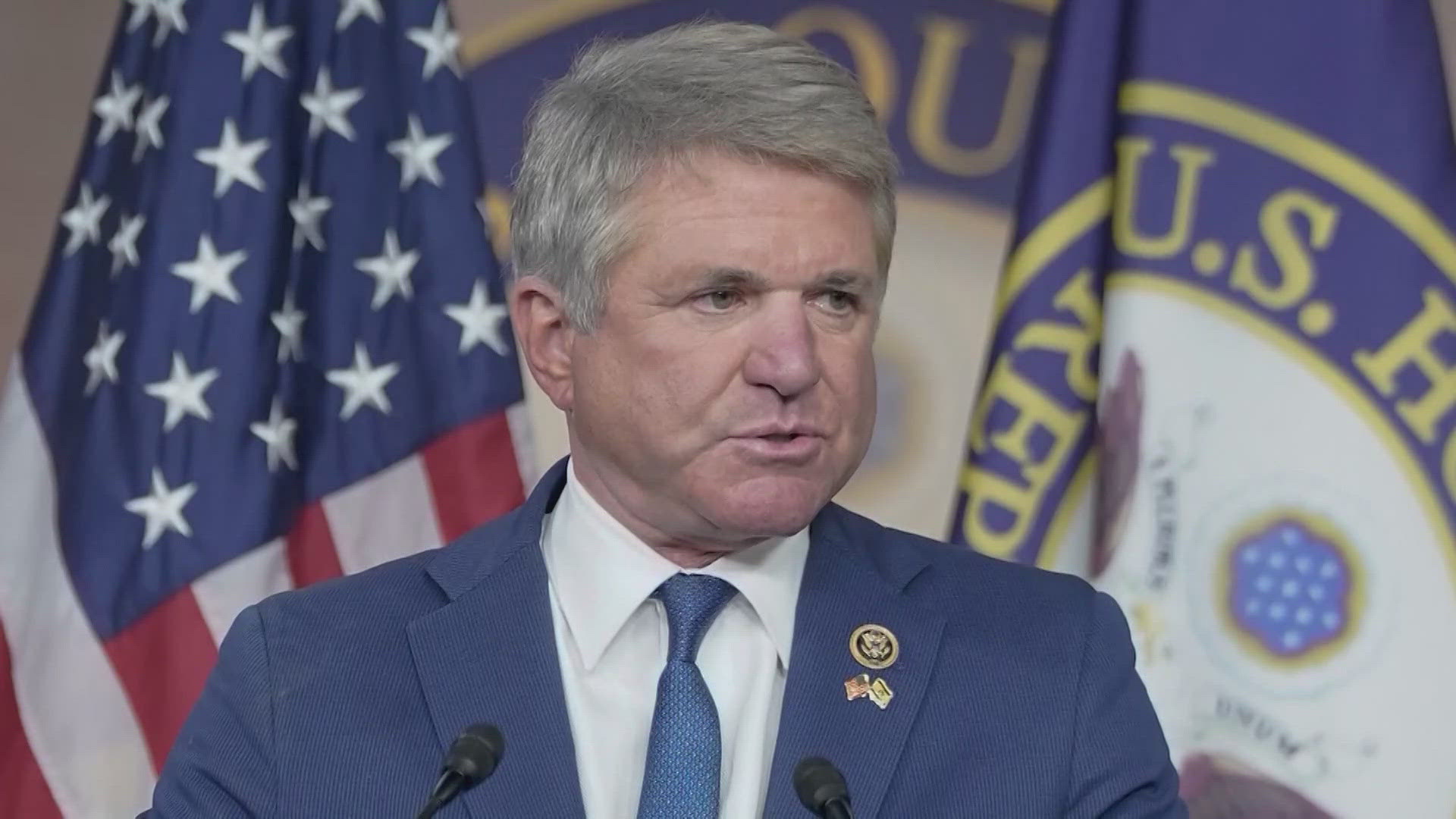SAN ANTONIO — Governor Greg Abbott kept his promise of a veto spree if legislators didn't strike a deal on property tax relief, having rejected 76 bills passed by the Texas Legislature in its recently wrapped 88th regular session.
Sunday night was the deadline for Abbott to veto legislation sent to his desk. The extent to which he did so was historic: Only Rick Perry vetoed more bills after an individual regular session, blocking 83 from becoming law in 2001.
The 76 vetoed pieces of legislation may be a fairly small number, but some of those bills are consequential:
- HB 279 would have expanded the scope of human trafficking laws to include protections for disabled individuals.
- HB 4759 would have created harsher penalties for owners in dog attacks.
- SB 467 would have strengthened criminal penalties for tampering with gas pumps.
- SB 335 would have required the Family and Protective Services Council to broadcast open meetings online.
Most of the bills in question were vetoed since Thursday, well after the 2023 session's adjournment. (A line-item in this year's approved budget was also vetoed by Abbott.)
"I think he was channeling his inner Rick Perry in that he was going after members of the legislature who had angered him," said Jon Taylor, chair of the UTSA Political Science Department. "(For instance) he was vetoing pieces of legislation from State House members, fellow Republicans, who had opposed him on school vouchers."
Why did he veto so many bills?
In a move indicative of how big a priority he views property tax cuts -- an issue over which legislators remain gridlocked -- Abbott on June 14 suggested that bills yet to be signed "face the possibility, if not the probability" of being tossed from his desk without a signature until a tax reform deal was struck.
Lawmakers have been in a stalemate for much of June, with state representatives passing their own proposal on tax cuts then quickly adjourning—essentially leaving the Senate with the option of either accepting the House version or leaving the special session having accomplished nothing.
"And so here we are with a game of chicken that's been going on ever since," Taylor said.
The Senate on Tuesday did pass its version of a bill which would provide $18 billion in tax relief to Texans, and while Lt. Gov. Dan Patrick called on the House to return and take it up, Taylor expressed doubt that that would happen.
What happens now?
The bills were on the path of becoming law before Abbott vetoed them. Now that end result is in doubt; because the regular session is over, there is no place for the bills to be returned for additional discussion and potential override.
Per the Texas Constitution, because the session had adjourned, Abbott had 20 days to either sign or veto bills that advanced to his pen. But because the session is over, there is no place for bills to return to for additional discussion and potential override (which would require a two-thirds vote in both the Texas House and Senate).
That means those 76 bills are effectively dead.
Can legislators override the vetoes during this special session?
No. Per the Texas Constitution, any 30-day special sessions called by the governor can only cover topics specified by the governor in question.
The ongoing special session is limited to discussion and legislation surrounding property tax cuts and border security, with Abbott essentially telling legislators to come up with a plan for how best to use a $17.6 billion line item specified for tax cuts.
In several veto proclamations, however, Abbott suggested blocked legislation could be reconsidered "at a future special session" after school vouchers or property tax relief is passed, referring to his major legislative priorities.
"This is probably one of his biggest powers right now, is to tell them, 'Look, I'm going to call another special session,'" Taylor said, adding there's precedent for lawmakers to convene for said special session only to immediately adjourn.
What do other Texas leaders think of the tactic?
The man who holds the state's second-highest office, Lt. Gov. Dan Patrick, has publicly criticized Abbott for his strategy of leveraging legislation against his priority of property tax cuts.
".@GovAbbott can't have it both ways," Patrick tweeted on June 15. "He is telling the House and Senate to work together on property taxes while vetoing legislation that the House and Senate worked on together."
In prior tweets Patrick called Abbott's threat "an affront to the legislative process and the people of Texas." Patrick is also in favor of property tax cuts, but he and Abbott are at odds over which proposed plan is best.
Taylor said Texas Republicans should be cautious about continued party infighting if they don't want Democrats to potentially gain momentum in the Lone Star State. Those political arguments, he says, helped pave the way for Republicans to dominate state government by the 2000s.
"Politics is cyclical," he said. "At some point – not anytime soon, but at some point – it's likely going to happen again. Republicans need to be careful here."
>MORE TEXAS POLITICS NEWS:



